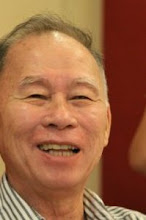Flag-waving leftists can rally night and day at Malacanang Palace and the offices of the Department of Energy but such futile efforts will not present any solution to increasing oil prices. They offer nothing to improve the political instability problem in the Middle East that has been hampering oil production and distribution. Angry voices, placards and splashing of red paint cannot provide the alternative sources of energy to address the impending global oil scarcity that the International Energy Agency (IEA) predicts.
This global oil crisis is a very serious and disturbing development. This is why the US invaded Iraq — to corner the oil in Iraq and thus to dominate the Middle East oil supply. Oil is also the reason why the US and China have been strategically positioning their forces all over the South China Sea where they see untapped rich oil and gas deposits.
If the super powers are fighting over oil deposits that will dry up in 20 years, we should already talk about it and subsequently take action - short of pushing the panic button. The Philippines is the most vulnerable victim if these developments escalate to armed conflict between the US and China. The West Philippine Sea will be the front row of the theater of war. The super powers have engaged in wars with far less importance than what is at stake in this looming conflict in the South China Sea.
At the very least, the government — including Congress and the Senate, with the support of the Judiciary — should be openly discussing this issue with the Filipino people and preparing contingency measures for projected scenarios. What are we to expect and do when the oil supply can only fill half of what the world needs - ration? Following the IEA assessment, the world oil reserve will dwindle to 50 percent in a decade. Imagine how much a liter will then cost!
We cannot wait for 2022 before we decide to sit down and take action. The Filipino today is like a very sick man dying of lung cancer and end-stage kidney disease — whose main concern is only to take lagundi and scratch his itchy skin.
The logical thing to do now is to throw a tantrum and get the world community to seriously look at and address the world’s sources of energy. At the start of the industrial revolution over a hundred years ago, the world extensively used the dirtiest fossil fuel available, coal, until it is now almost gone. We are now consuming oil - while it lasts. But if we continue using OPEC’s oil, it will not only attract armed conflict, but it also is the main cause of climate change and impending global ecological disaster.
It stands to reason that we should stay away from the clutches of the greedy oil players and shift to what we have for our own energy needs, natural gas. Natural gas is also the least polluting of the fossil fuels. For power plants and heavy vehicles, we have already started to use natural gas from Malampaya. We are fortunate that recently we found huge deposits of accessible natural gas around our shorelines. This source of energy is also widely available, differing only from country-to-country on how easily this methane gas hydrate can be mined or accessed.
We should therefore encourage the local development of battery-operated cars, because compressed natural gas (CNG), the most convenient form of natural gas, is still too bulky for small vehicles. Batteries need to be charged from energy supplied by power plants. By going into battery-run cars, we will start to totally move away from polluting fossil fuels and will consequently force industry to seriously go hydro, solar, wind, tide and/or other alternative sources of energy. 

The problem at the heart of many sustainable-energy systems is how to inexpensively store power so it can be delivered to the grid all the time, day and night, even when the wind is not blowing, the tide is static, and/or the sun is not shining. At MIT, Donald Sadoway has been working on a grid-size battery system that stores energy using a three-layer liquid-metal core. With help from fans like Bill Gates, Sadoway and two of his students have spun off the Liquid Metals Battery Corporation (LMBC) to bring the battery to market. Realistically, as with other alternative-energy projects, start up problems will come up, but should eventually be resolved.
This brings a bright ray of hope for the future.



